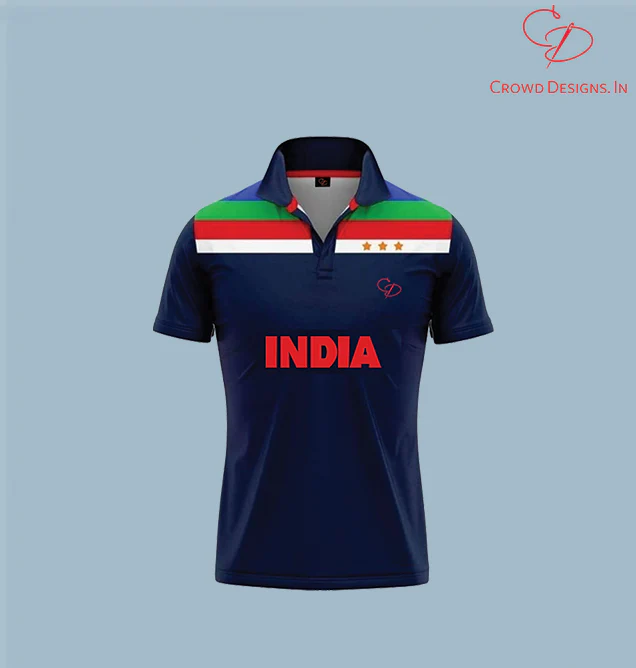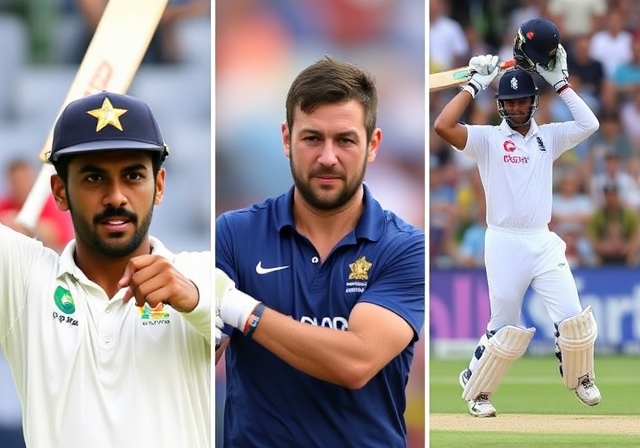In recent years, Hollywood has seen an explosion in celebrity documentaries — a genre that takes fans behind the scenes of the lives of pop stars, actors, and other public figures. From the struggles of Britney Spears in Framing Britney Spears to Taylor Swift’s personal journey in Miss Americana, and even basketball star Michael Jordan’s story in The Last Dance, celebrity documentaries have become big hits with audiences and critics alike. They capture personal stories, tug at our emotions, and give fans an inside look at the people they idolize. With their growing popularity, these docs are not only gaining audiences but also racking up critical acclaim and prestigious awards.
But as celebrity documentaries continue to rise in popularity, they’re beginning to dominate categories like Best Documentary Feature at the Oscars, potentially edging out a genre that traditionally holds a lot of cultural and political weight — political documentaries. Political films often address pressing social issues, raise awareness about global crises, and push for change. But in a world increasingly focused on personalities and pop culture, these hard-hitting films are finding it harder to compete with the personal narratives and wide appeal of celebrity-focused docs.
In this post, we’ll explore why celebrity documentaries are so popular, how they are affecting the Oscars and other awards shows, and why their success could mean a tougher road ahead for politically driven documentaries.

1. The Popularity of Celebrity Documentaries: Why Audiences Can’t Get Enough
There are several reasons why celebrity documentaries have become so popular, both among fans and the general audience.
Personal Connection with Viewers
People love to know what goes on behind the scenes, especially when it involves a public figure they admire. Celebrity documentaries allow fans to get an intimate look at the lives of their favorite stars. Unlike traditional interviews or magazine profiles, these films provide a deeper, unfiltered look into who these celebrities really are.
For example, Billie Eilish’s documentary The World’s a Little Blurry takes fans inside her life as a young pop star. It shows the pressures of fame, her personal struggles, and her relationship with her family. This kind of access creates a strong emotional connection with viewers. Fans feel like they’re getting to know the “real” Billie Eilish, which makes these documentaries more appealing than films on abstract or complex political topics.
The Power of the Parasocial Relationship
The rise of social media has fueled the phenomenon of parasocial relationships — one-sided relationships where fans feel connected to celebrities even though they’ve never met. When a star shares personal experiences, fans feel closer to them, almost as if they’re friends. A celebrity documentary enhances this connection by offering an exclusive peek into the celebrity’s life, which reinforces that sense of intimacy and closeness.
For instance, in Taylor Swift’s Miss Americana, fans see the singer struggling with body image issues, her experience with public scrutiny, and her eventual decision to speak out on political issues. This kind of vulnerability makes fans feel even more connected to her, strengthening the parasocial bond. Political documentaries, on the other hand, lack that same personal appeal. They often cover topics that are harder for viewers to emotionally connect with on a personal level, which can make them feel distant or impersonal.
Escapism and Entertainment
Celebrity documentaries also offer a form of escapism. They allow viewers to immerse themselves in the glamorous world of fame and success, even if that world comes with its own challenges. Watching these films can be a fun, emotionally engaging experience, especially for fans who idolize these stars.
By contrast, political documentaries often delve into heavy topics like corruption, war, inequality, and human rights abuses. While these subjects are critically important, they can also be exhausting to watch. At a time when audiences may feel overwhelmed by real-world issues, a celebrity documentary provides a lighter, more entertaining viewing experience.
2. The Oscar Appeal of Celebrity Documentaries
With their popularity on the rise, celebrity documentaries aren’t just crowd-pleasers; they’re also catching the attention of critics and awards voters. Several celebrity documentaries in recent years have been nominated for — or have won — major awards, including the Oscars.
The Relatability and Emotional Pull
Oscar voters, like any other audience, are drawn to films that evoke strong emotions. Celebrity documentaries often tell compelling human stories that resonate with viewers on an emotional level. They show vulnerabilities, struggles, and triumphs, which can make them seem more relatable and impactful than complex political narratives.
For example, Amy, the documentary about the life of singer Amy Winehouse, won the Oscar for Best Documentary Feature in 2016. It was a heartbreaking exploration of Winehouse’s struggles with addiction, fame, and the pressures of the music industry. The film’s emotional weight resonated with viewers and critics alike, winning over the Academy’s voters in a way that many political documentaries couldn’t.
Star Power and Media Attention
Celebrity documentaries come with built-in star power that political documentaries simply don’t have. A documentary about a major celebrity like Beyoncé or Lady Gaga naturally garners more media coverage and public attention than a film about political issues, no matter how important those issues may be. This increased visibility can boost a celebrity doc’s chances during awards season, as more people (including Oscar voters) are likely to watch it.
When a documentary is centered on a high-profile star, it often gets covered widely in entertainment media, drawing more eyes to the film. By contrast, a political documentary may only receive coverage in niche outlets, limiting its reach and making it harder for the film to build momentum and visibility in the awards race.
Celebrity Docs Are More “Shareable” and Social Media-Friendly
In the age of social media, films that are easy to discuss and share online have an advantage. Celebrity documentaries generate plenty of social media buzz, as fans take to Twitter, Instagram, and TikTok to share clips, quotes, and personal reactions. This kind of organic promotion keeps these documentaries in the public eye and drives more viewers to watch them.
Political documentaries, however, are often less “shareable.” While they may spark discussions, they don’t lend themselves to quick, entertaining soundbites in the same way a celebrity doc does. This makes them less likely to go viral or gain the kind of widespread attention that can make a difference during awards season.
3. The Impact on Political Documentaries at the Oscars
The rise of celebrity documentaries isn’t just a trend; it’s reshaping the landscape of documentary filmmaking, and that has consequences for political documentaries. Here are some of the ways this shift is impacting political films in the Oscar race.
Less Visibility for Important Social and Political Issues
Political documentaries have traditionally used the Oscars as a platform to bring attention to critical social and political issues. Winning an Oscar can give these films a massive boost, increasing their viewership and sparking important conversations. When these films don’t get nominated — or are overshadowed by celebrity docs — it reduces their visibility and limits their impact.
For instance, films like 13th by Ava DuVernay, which explores the history of racial inequality in the United States, and An Inconvenient Truth, which tackles climate change, have used the Oscars to elevate urgent social causes. But as celebrity documentaries capture more attention, these important films may struggle to gain the recognition they need to reach a wider audience.
Oscars Becoming More of a Popularity Contest
As more celebrity documentaries dominate awards shows, there’s a risk that the Oscars could start to feel more like a popularity contest. When awards go to the most popular or buzzed-about documentary instead of the most impactful one, it changes the perception of what the Oscars represent. While celebrity documentaries are compelling and emotionally resonant, they often don’t have the same social or political urgency as traditional documentaries.
If the trend continues, the Oscars could lose some of their reputation as a platform for championing socially relevant, thought-provoking films. Instead, they could be seen as merely celebrating pop culture, which might diminish the value of the documentary category as a whole.
Shifting Resources and Focus Away from Political Topics
As audiences flock to celebrity documentaries, studios and streaming platforms are likely to invest more in them. Documentaries about celebrities can be big money-makers, as they come with a built-in fanbase and generate plenty of attention. With more resources and attention focused on celebrity docs, there’s a risk that funding and distribution opportunities for politically driven documentaries could dry up.
Platforms like Netflix, for example, have invested heavily in celebrity documentaries because they know these films are popular with subscribers. While they also produce political documentaries, the shift in focus could lead to fewer politically themed films being made or promoted, which would limit the range of voices and topics in the documentary genre.
Final Thoughts: Can Celebrity Docs and Political Films Coexist?
The rise of celebrity documentaries isn’t inherently a bad thing. They provide entertainment, connection, and sometimes even insight into important issues (like mental health, body image, and fame). And they bring a lot of new viewers into the documentary world, people who might not otherwise watch documentaries.
However, there needs to be a balance. Political documentaries serve an essential role by shedding light on underrepresented issues, challenging social norms, and encouraging critical thinking. If celebrity documentaries continue to dominate awards season and cultural conversations, there’s a risk that political films could lose their platform, reducing their ability to create change.
To maintain this balance, perhaps the Oscars and other awards shows could consider new ways to recognize different types of documentaries. Maybe they could add separate categories for social impact documentaries versus entertainment-focused documentaries. This would ensure that both types of films get their due recognition and that viewers continue to be exposed to a broad range of stories.
In the end, both celebrity and political documentaries have valuable roles to play. While celebrity docs offer an intimate look at people we idolize, political documentaries remind us of the issues that affect us all. With a little more room for both, the Oscars could continue to be a space that honors not just the famous, but also the causes that truly matter.









Leave a Comment